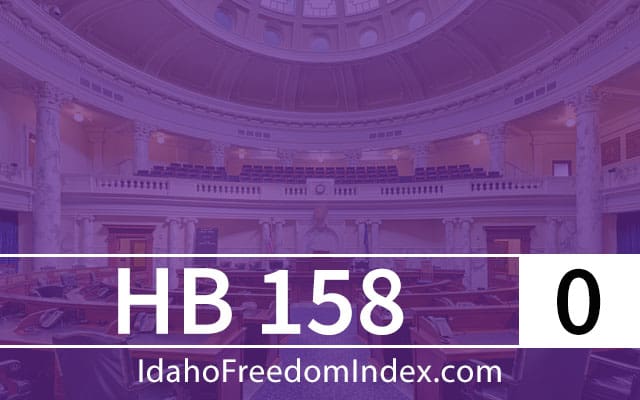


Bill description: HB 158 would limit the ability of homeowner associations to restrict installation of solar panels on private homes.
Rating: 0
Does it transfer a function of the private sector to the government? Examples include government ownership or control of any providers of goods or services such as the Land Board's purchase of a self-storage facility, mandatory emissions testing, or pre-kindergarten. Conversely, does it eliminate a function of government or return a function of government to the private sector?
Homeowner associations are private entities capable of making regulations within a fixed area for residents who give their consent when they purchase their home. When a bill like HB 158 restricts the activity of private entities, it transfers their regulatory function to the government by allowing the government to say how these private entities can and cannot function. If HB 158 passes, the regulatory power of an HOA to make rules regarding solar panel installation would be transferred to the Legislature.
(-1)
Does it violate the spirit or the letter of either the US Constitution or the Idaho Constitution? Examples include restrictions on speech, public assembly, the press, privacy, private property, or firearms. Conversely, does it restore or uphold the protections guaranteed in the US Constitution or the Idaho Constitution?
Though homeowner associations are private groups, they exercise some powers normally reserved for units of government (e.g. fines and liens). HB 158 would prevent them from overreach on private property rights. The bill would give residents the ability to decide whether to install solar panels on their own private property.
(+1)


